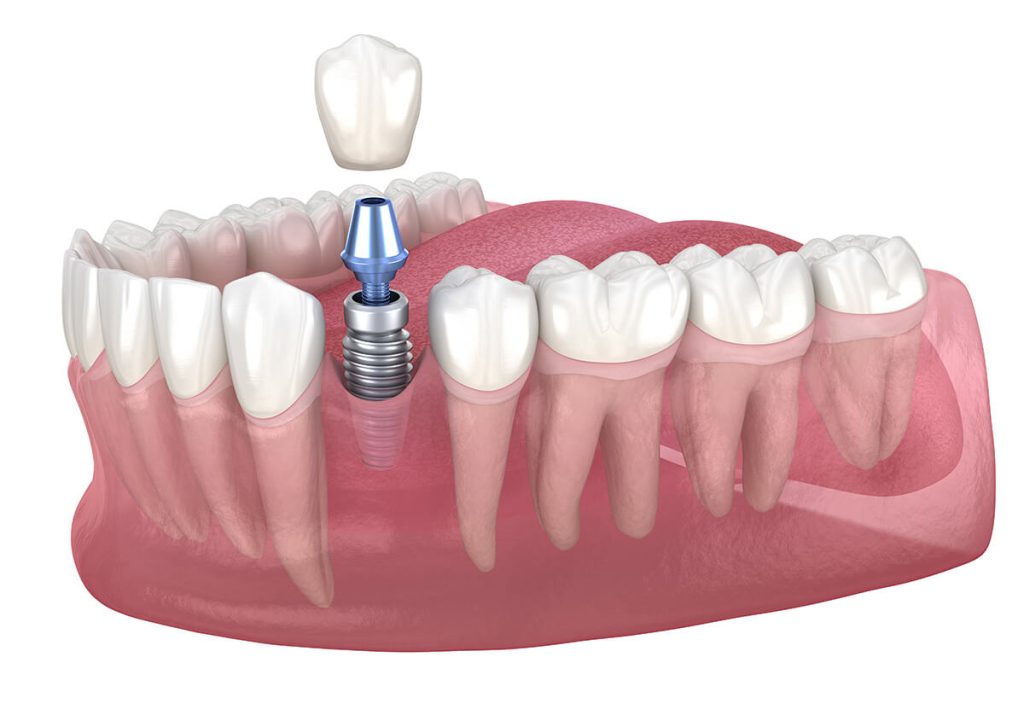Crowns, bridges, and dentures made with implants are designed like natural teeth. And natural teeth can last a lifetime with good care. So, tooth loss doesn’t have to be in your future, nor is it a “normal” part of aging. Using this line of thinking, prosthetic or replacement teeth supported by dental implants are built to last. They can be permanent as long as good and consistent care is maintained.
For this reason, your team at Alpine Family Dental encourages patients in and around Kalispell, Montana, to view implants as a great investment in their smile (and overall health and wellbeing), as well as a great value. Other types of replacement teeth require ongoing adjustments and replacement. For instance, conventional dentures need to be relined, rebased, and eventually replaced.
These dentures are not as permanent of a solution to missing teeth, because they are not designed to account for the roots of the teeth. Since they only replace the parts of the teeth that are visible in the smile, these dentures do not keep the supportive bone in the jaw strong. As the bone retreats, the denture no longer conforms as well to the evolving shape of the mouth. Dentures may shift, cause discomfort and sores, and function can suffer.
Implants, however, not only replace teeth. They also replace the roots that support the teeth. In doing so, the bone in the jaw retains its strength. The jawbone stays strong because it benefits from the stimulation it gets from the attached prosthetic teeth and from activities like grinding down chewy food. The bone retains its density and shape, and the denture continues to conform well to the contours of the mouth.
There are some caveats and important care-related considerations:
- Artificial teeth do not decay like natural teeth; however, implant crowns, bridges, and dentures are vulnerable to threats from peri-implantitis. This gum disease-like condition affects the tissues around the implant. The stability of prosthetic teeth depends on the implant. So, it is critical to ensure that you brush and floss properly around the implant.
- Good home care should always be combined with consistent visits to our office. During regular check-ups, our hygienists remove substances you can’t remove with a standard toothbrush or other OTC products. Notably, plaque build-up or tartar is notoriously stubborn. Their special tools and training help to keep potentially damaging peri-implantitis at bay. That way, your implant can continue to support its attached teeth as designed. These visits are also opportunities for one of our dentists, Drs. Evan Olson and Autumn Chapman to detect problems early and suggest interventions before your implant is threatened and may be irreparably damaged.
- Other causes of “late-stage implant failures” that occur after an implant has healed and been restored include destructive habits or behaviors. For instance, smoking and other products that contain nicotine restrict blood flow and are associated with poorer implant outcomes than non-smokers. It is also important to reduce, abstain from, or resolve other behaviors that can damage the implant and its connected tooth. These behaviors include chronic teeth grinding and intense and persistent chewing on hard objects like ice.

